Indigenous Spaces
Algonquin College takes pride in its commitment to making Indigenous Knowledge and traditions an integral part of the institution’s culture. Over the years this has included establishing a variety of Indigenous Spaces on Campus. Learn more about these spaces here:
- DARE District
- Ishkodewan
- Nawapon
- Pìdàban
- Three Sisters Garden
- Indigenous Pathways
- Remember the Children Art Installation
DARE District
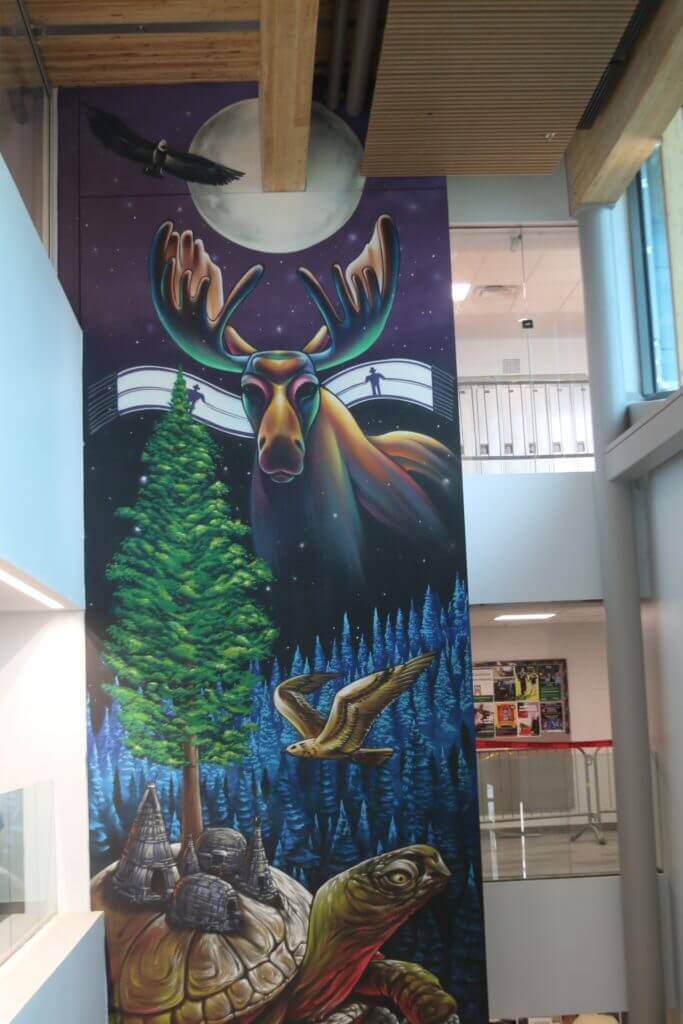
The DARE District’s three-storey mural is impossible to miss, but the building’s Indigenous influences go far beyond the striking visual of animals and nature.
Indigenous knowledge, methodology, and imagery are embedded throughout the DARE District’s design, identity, and purpose.
“Within the new DARE District, Algonquin has raised and invested $5.4 million dollars into four unique areas that embed, profile, and celebrate Indigenous culture and identity,” says Ron McLester, Executive Director of Truth, Reconciliation & Indigenization. “There is the courtyard (under construction), the Indigenous Commons, the Institute of Indigenization, and an area on our third-floor Library that is meant to be a bit of a repository for traditional Indigenous knowledge.
Learn more about the DARE District.
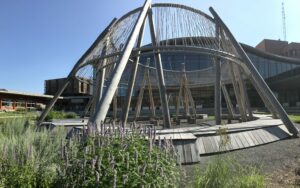 Ishkodewan
Ishkodewan
Ishkodewan is the title for the outdoor courtyard with its Gathering Circle and fire-vessel. The word means “there is fire.”
Ishkodewan, is used for special ceremonies and an outdoor classroom;
In the College’s Ishkodewan courtyard, Horticultural Industries students planted the largest Indigenous garden in Ottawa — with more than 100 plant species that have cultural and historical significance to Indigenous Peoples for their medicinal, nutritional or cultural properties. The courtyard garden is the outdoor component of the College’s newest facility, the DARE District, which opened 2018.
Nawapon
Nawapon, an Algonquin word that translates as “gathering strength for the journey,” is the new name for the Indigenous Learning Commons. Nawapon serves as a gathering place for the College community, as well as a place where Algonquin hosts events.
Nawapon serves as a gathering place for the College community, as well as a place where Algonquin hosts events.
Pìdàban
Pìdàban is the name by which the Institute for Indigenization in Room C251 on the second floor of the DARE District is known. Pìdàban – the word translates as “past, present, and future” – alludes to the natural phenomena of “daybreak,” that moment in the morning when night becomes a new day. As McLester observed, the symbolism of the word is most appropriate for a space devoted to Indigenization and social entrepreneurship.
Three Sisters Garden
2019 saw the creation of a Three Sisters Garden of corn, beans and squash. The Sisters symbolize peace, friendship and respect. This traditional Haudenosauneestyle community garden project quickly took on a life of its own.
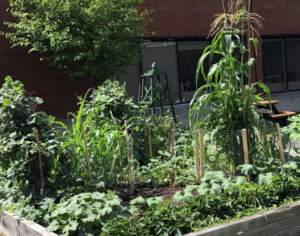
A callout for garden volunteers received a flurry of interest from both students and employees. Overseen and maintained by College volunteers, this green space gives people of other cultures access to the Haudenosaunee creation story.
Indigenous Pathways
As part of Algonquin’s Indigenization Strategy, Facilities Planning is working with Truth, Reconciliation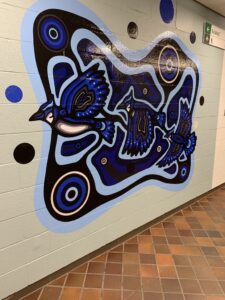 and Indigenization on naming and renaming interior and exterior ‘pathways’ on the Ottawa campus with Indigenous names.
and Indigenization on naming and renaming interior and exterior ‘pathways’ on the Ottawa campus with Indigenous names.
These projects were developed from the desire to include more indigeneity on campus through language and an opportunity for people to learn Indigenous words and history.
- Major routes within each building and between them has been identified to become the interior ‘pathways’.
- Several brainstorming sessions have ensued to develop the current proposal of applying Indigenous scenery and iconology along the selected corridors to give each interior ‘pathway’ an identity and facilitate wayfinding.
Learn more about Indigenous Pathways.
Remember the Children Art Installation
Algonquin College recently unveiled a permanent monument to honour and remember the children who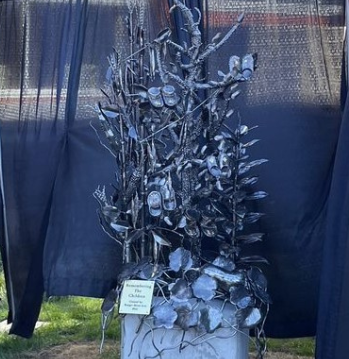 never returned home and the survivors of residential schools, as well as their families and communities.
never returned home and the survivors of residential schools, as well as their families and communities.
Public commemoration of the tragic and painful history and ongoing impacts of residential schools is a vital component of the reconciliation process.
The College, along with the Office of Truth and Reconciliation, decided to remember the children by commissioning a piece of art, a permanent reminder to remain on display in Ishkodewan. It will serve as a gathering place for reflection and spark conversation in learning more about this disturbing part of our history.